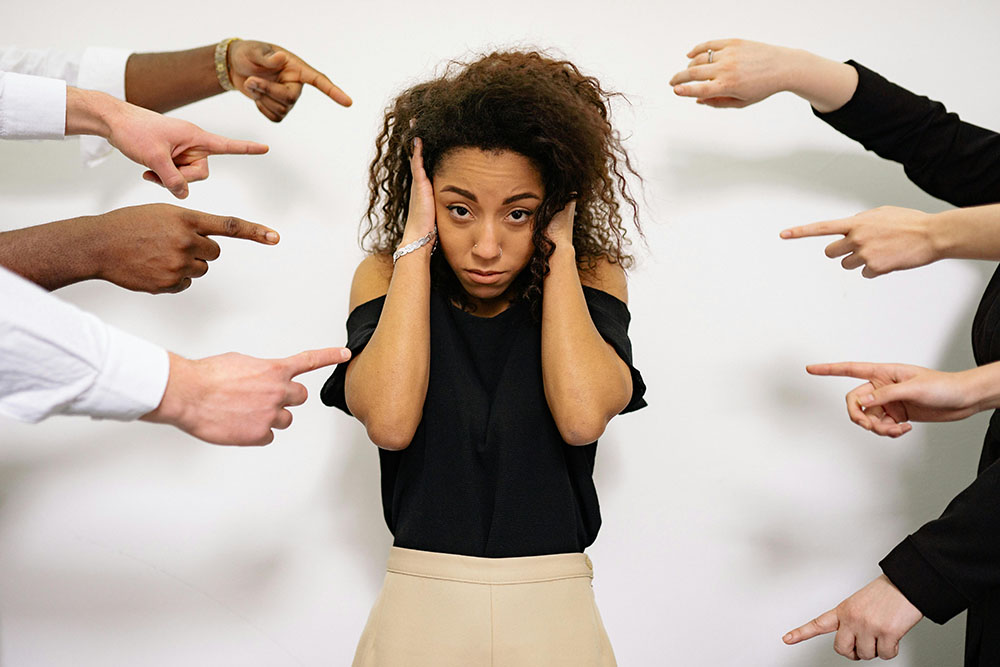HIV continues to disproportionately affect the Black community in the United States. Despite comprising only 13% of the U.S. population, Black Americans account for a significantly larger percentage of new HIV diagnoses. In 2022, Black individuals represented 39% of all HIV cases. This disparity is not solely due to the virus itself, but also to deeper issues like stigma, discrimination, poverty, and limited access to healthcare.
The Impact of Stigma
Protection in sexual health refers to using preventive measures to reduce the risk of STIs and pregnancy. Stigma surrounding HIV can be just as damaging as the virus itself. It includes negative attitudes, beliefs, and judgments towards people living with HIV/AIDS. This stigma can manifest as:
- Perceived Stigma: The fear of societal attitudes and potential discrimination.
- Enacted Stigma: Actual experiences of discrimination due to HIV status.
HIV-related stigma can lead to many negative consequences, including isolation, loss of social status, and discrimination from loved ones, healthcare providers, and employers. This can prevent individuals from getting tested, seeking treatment, and disclosing their status, further fueling the epidemic. Black individuals living with HIV report greater perceived stigma and social rejection compared to other groups. This is compounded by the intersection of HIV stigma, racial discrimination, and, for some, stigma related to sexual orientation.
Factors Contributing to HIV Stigma in the Black Community
Several factors contribute to the persistence of HIV stigma within the Black community:
- Socioeconomic Factors: Poverty, lack of access to education, and limited healthcare options.
- Distrust: Lingering distrust in government sources of information and research due to historical injustices like the Tuskegee Syphilis Study.
- Misinformation: Mistaken beliefs about HIV only affecting only gay, white men.
- Cultural Norms: Stigma around homosexuality and gender identity silences Black men who have sex with men.
Strategies for Challenging Stigma
Challenging HIV stigma requires a multi-faceted approach that addresses the root causes and empowers individuals and communities:
- Promote Testing and Treatment: Encourage regular HIV testing and early initiation of antiretroviral therapy (ART). ART can help people with HIV live long, healthy lives and prevent transmission to others.
- Education and Awareness: Increase education about HIV transmission, prevention, and treatment. Dispel myths and misconceptions with accurate information. National Black HIV/AIDS Awareness Day is a great opportunity to promote awareness and reduce stigma.
- Open Conversations: Encourage open and honest conversations about HIV within families, churches, and community organizations. Create safe spaces for people to share their experiences and concerns.
- Representation and Visibility: Highlight the stories of Black individuals living with HIV who are thriving and making a difference. Promote positive representation in media and popular culture.
- Support and Advocacy: Support organizations that provide HIV testing, treatment, and support services to the Black community. Advocate for policies that address social determinants of health and reduce healthcare disparities.
- Address Homophobia and Transphobia: Challenge stigma related to sexual orientation and gender identity within the Black community. Create inclusive spaces for LGBTQ+ individuals.
The Power of Sharing: Connecting with Others
One of the most effective ways to combat stigma is by talking about HIV with others. Sharing your experiences, fears, and hopes can create a sense of community and reduce feelings of isolation. Talking openly about HIV can also help normalize the subject and correct misconceptions.
Here are some ways to connect with others:
- Talk to trusted friends and family members: Sharing your status with someone you trust can provide emotional support and reduce feelings of loneliness.
- Join a support group: Connecting with others who share similar experiences can be empowering. Heart to Hand offers Wellness Affinity Groups, providing a safe, confidential space for the Black community to discuss mental and emotional well-being while navigating life with HIV.
- Seek counseling or therapy: Speaking with a therapist can help you process emotions and develop coping strategies for stigma. Our case managers can connect you with licensed professionals who specialize in counseling and mental health support.

In conclusion, breaking HIV stigma is essential for the Black community’s health and well-being. By promoting understanding and empowerment, we can create a supportive, equitable society. Black individuals living with HIV can drive change, educate others, and build a strong, visible community, ensuring no one faces this journey alone.



